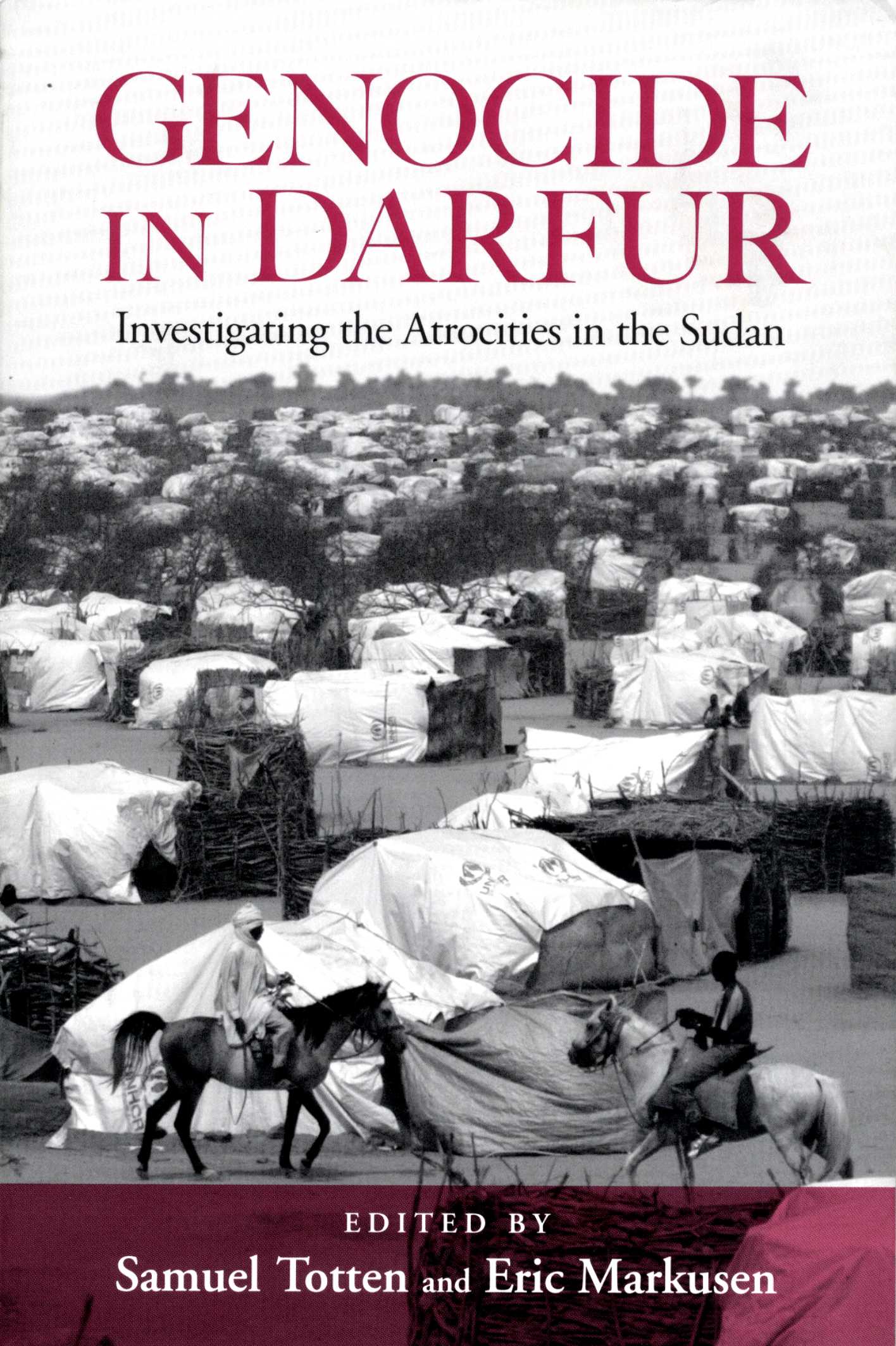FAYETTEVILLE, Ark. — Two years have passed since then-Secretary of State Colin Powell reported to the Senate Foreign Relations Committee that genocide was being committed in Darfur, Sudan. Samuel Totten awakes in the middle of the night sometimes and remembers the accounts of rape, torture and slayings that he documented while spending two weeks in 2004 at refugee camps in neighboring Chad.
Despite Powell’s assessment, the international community has done little to stop the killing and brutalization or help the people of Darfur, Totten lamented. Government of Sudan troops and Arab militia known as Janjaweed attacked village after village of black Africans in retaliation for rebel attacks on government installations, but the soldiers and militia killed and raped innocent men, women and children. About 2.5 million black Africans have been forcibly displaced from their homes and at least 300,000 have been killed or died as a result of the violence or of malnutrition and disease since 2003.
“If I wake up at night, the first thing I think about is their current situation. I think of it frequently throughout the day. Nothing is being done,” Totten said.
Between trips to countries such as Rwanda, the site of genocide in 1994, and Australia, where he spoke about the plight of Darfur, the genocide scholar and University of Arkansas professor enjoys a comfortable life on Beaver Lake.
“Then I think, 'Those people are still out there,’” he said. “Not only are they suffering physically with no hope of the comforts we enjoy, psychologically they live with the horror of what happened to them and what they saw done to others. They live with the hopelessness.”
Refugees and internally displaced people continue to die as a result of hardship caused by the conflict, and killings and rapes also continue, including attacks on many refugee camps, according to Totten.
Totten, the editor of several books on genocide, Darfur and the Holocaust, and Eric Markusen, senior researcher in the department of Holocaust and genocide studies at the Danish Institute for International Studies, continued their collaboration in the editing of a new book, Genocide in Darfur: Investigating the Atrocities in the Sudan. Totten teaches secondary education in the UA College of Education and Health Professions, and Markusen teaches sociology at Southwest Minnesota State University.
The book published by Routledge describes the U.S. State Department’s Atrocities Documentation Project undertaken in 2004. Totten and Markusen, along with other investigators on the 24-person team write about the methods they used and the challenges they faced interviewing the Darfur refugees. The book is not easy to read.
Women told the investigators of being brutalized, racial epithets flung at them as they were gang raped. People watched family members being beaten and killed and saw soldiers kill babies with bayonets and by beating the mothers with their babies’ bodies.
One investigator asked a local sheik to tell women to come to her outside the village to recount the sexual assaults they suffered. The investigator, Jan Pfundheller, expected eight or 10 women, but wave after wave of women came over a hill until hundreds were gathered around her. Some of her words to the women illustrate the agonizing limitations the investigators faced.
“I cannot promise you more food distributions or more medicine for the children. I cannot tell you that you will return to your homes. I can only promise that what has happened to you will be told to my government, and then perhaps the world,” Pfundheller said.
At the end of Powell’s address to Congress two years ago, he said the United States had done all it could for Darfur and that it was time for the United Nations to step up its efforts to help the people. Although Totten is bitterly discouraged by the subsequent lack of action from the international community, he believes the documentation of atrocities was extremely valuable, a precedent that could prevent genocide in the future.
“It is pretty incredible that the United States did this,” Totten said. “This was the first investigation by a nation into an ongoing situation to determine whether genocide was being committed, the first time one sovereign nation accused another nation of genocide during an ongoing situation.”
Totten urges anyone interested in helping the people of Darfur to send letters or e-mails to President Bush, Secretary of State Condoleezza Rice and the United Nations, specifically Secretary-General Kofi Annan, Advisor on Genocide Juan Mendez and the U.N. Security Council. For two years, he has maintained an online petition through which he has collected signatures asking for increased international attention to the region.
“People either find this incomprehensible or think there is nothing an individual can do about another horrific event on the other side of the world,” Totten said. “But, more people are becoming involved from national organizations and student organizations on campuses including the University of Arkansas to actors such as George Clooney. Getting the word out is absolutely critical.
“But even more critical is prodding, cajoling, pushing the U.N. to act now to stop the horrific carnage.”
